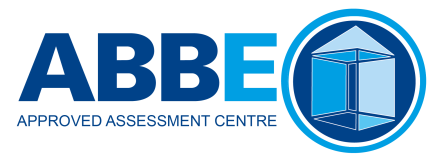
Vulcan Supports Fire Door Safety Week 2016
2nd September 2016
Vulcan Fire Training are supporting Fire Door Safety Week (26th September to 2nd October), raising awareness of the critical role of fire doors, drawing attention to specific issues, such as poor installation and maintenance.
There are about 3 million new fire doors bought and installed every year in the UK, the vast majority made from timber. Fire doors are often the first line of defence in a fire and their correct specification, maintenance and management can be the difference between life and death for building occupants.
However, they remain a significant area of neglect, often the first thing to be downgraded on a specification and mismanaged throughout their service life, propped open, damaged and badly maintained.
Fire Door Safety Week has been created for the following reasons:
- To raise awareness of the critical role of fire doors, drawing attention to specific issues such as poor installation and maintenance.
- To encourage building owners and users to check the operation and condition of their fire doors and to report those that aren’t satisfactory.
- To link together the initiatives of many organisations with common interests in the fire door and passive fire protection industries.
- To engage and educate people, helping the whole building industry and every property owner to understand the correct specification, supply, installation, operation, inspection and maintenance of fire doors.
Fire Door Safety Week is giving these tips for a 5 Step Fire Door Check that anyone can do:
- Check for certification - Is there a label or plug on top (or occasionally on the side) of the door to show it is a certificated fire door? You can use the selfie function on your camera phone or a mirror to check. If there is, that’s good news, otherwise report it to whoever is in charge of your building.
- Check the gaps around the top and sides of the door are consistently less than 4mm when closed. You can use a £1 coin to give a feel for scale, this is about 3mm thick. The gap under the door can be slightly larger (up to 8mm is not uncommon), but if does depend on the door - as a rule of thumb, if you can see light under the door, the gap is likely to be too big. It’s good news if the door fits the frame and it’s not damaged. If not, report it. If the gaps are too big smoke and fire could travel through the cracks.
- Check the seals - Are there any intumescent seals around the door or frame, and are they intact with no sign of damage? These seals are usually vital to the fire door's performance, expanding if in contact with heat to ensure fire (and in some cases smoke) can’t move through the cracks. If not, report it - the door may not be properly maintained and in the intensity of a fire may not protect you long enough.
- Check the hinges - Are the hinges firmly fixed (three or more of them), with no missing or broken screws? If you see problems, report it - the door is obviously not properly maintained and in the intensity of a fire may not perform and hold back the fire for long enough.
- Check the door closes properly - Open the door about halfway, let go and allow it to close by itself. Does it close firmly onto the latch without sticking on the floor or the frame? If not, report it. A fire door only works when it’s closed. A fire door is completely useless if it’s wedged open or can’t close fully.
As a provider of fire safety training courses our aim is to make sure delegates have the information they need to carry out effective fire risk assessments and identify any potential fire risks, which can be rectified to prevent an incident occurring. Commercial buildings, non-domestic and multi-occupancy premises in England and Wales must undertake a 'suitable and sufficient' fire risk assessment carried out under the Regulatory Reform (Fire Safety) Order 2005.
Ensure that your building meets its legal requirements with relevant fire training from Vulcan including fire extinguisher and awareness, fire warden and fire risk assessment.
To ensure you know how to carry out fire risk assessments book one of our training courses here.
To find out more about Fire Safety Week click here.


